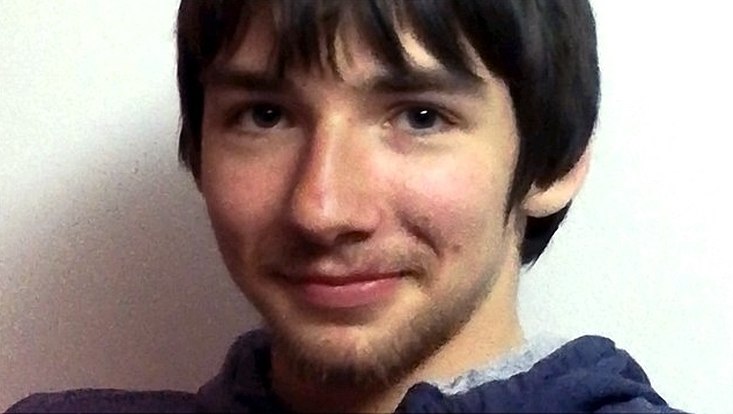Bohdan Dudar
10 March 2021

Photo: Kate Shumelyak
Bohdan Dudar is from Kyiv, Ukraine. He received his Master’s degree in May 2020 at the Taras Shevchenko National University of Kyiv. For his thesis, he chose to study the flux of the backwards scattered particles from the surface of the LumiCal detector. LumiCal is the calorimeter detector designed for the forward region of the International Linear Collider (ILC).
What is the topic of your research?
I am currently part of the FTX (Future research and technologies for particle physics experiments) group at DESY, the union of the former FLC, FLA and LUXE groups, with Jenny List as my supervisor. My research focuses on the role of fast timing detectors in future linear colliders. In other words, I try to identify the particle type by measuring how long it travels through the detector and I study whether this additional identification is helpful for any other physics analysis.
What fascinates you about your research focus?
What I like most about my work is that it’s not isolated. It might be helpful for other people and can be used by them. It is also a novel and relevant research area. Fast timing detectors with O(10ps) time resolution are cutting-edge technology and time-based identification is a very novel and untested idea. Secondly, my tasks are very diverse. I do programming for data analysis and high-level reconstruction of the particle mass using time of flight information and implementing it into the reconstruction software in collaboration with our software group. I have a hardware component consisting of test beam measurements of timing capabilities of the existing Silicon sensors. And last but not least, there is a theoretical part to estimate the effect of the additional particle identification provided by the new algorithms based on time of flight measurements on physics analysis of the Higgs Boson at the future e+e- colliders, charge tagging of the heavy flavor jets for CP violation studies, bottom and charm quark discrimination and potential improvement of the Kaon mass measurements.
What do you like about the cluster Quantum Universe?
I like the QU lectures a lot! They are very interesting and broaden my knowledge beyond my field of study. I was not able to experience a lot of social events in these times of COVID-19, but in the future, it would be lovely to attend in-person events organized by QU. As an elected member of the Student Council and its representative in the Quantum Universe Steering Committee, I also enjoy the Council meetings where we discuss students’ issues with the Cluster management and work together to find solutions.
What do you like to do in your free-time?
I like to play competitive computer and board games a lot. Playing soccer, running and stretching are things I also really enjoy.
